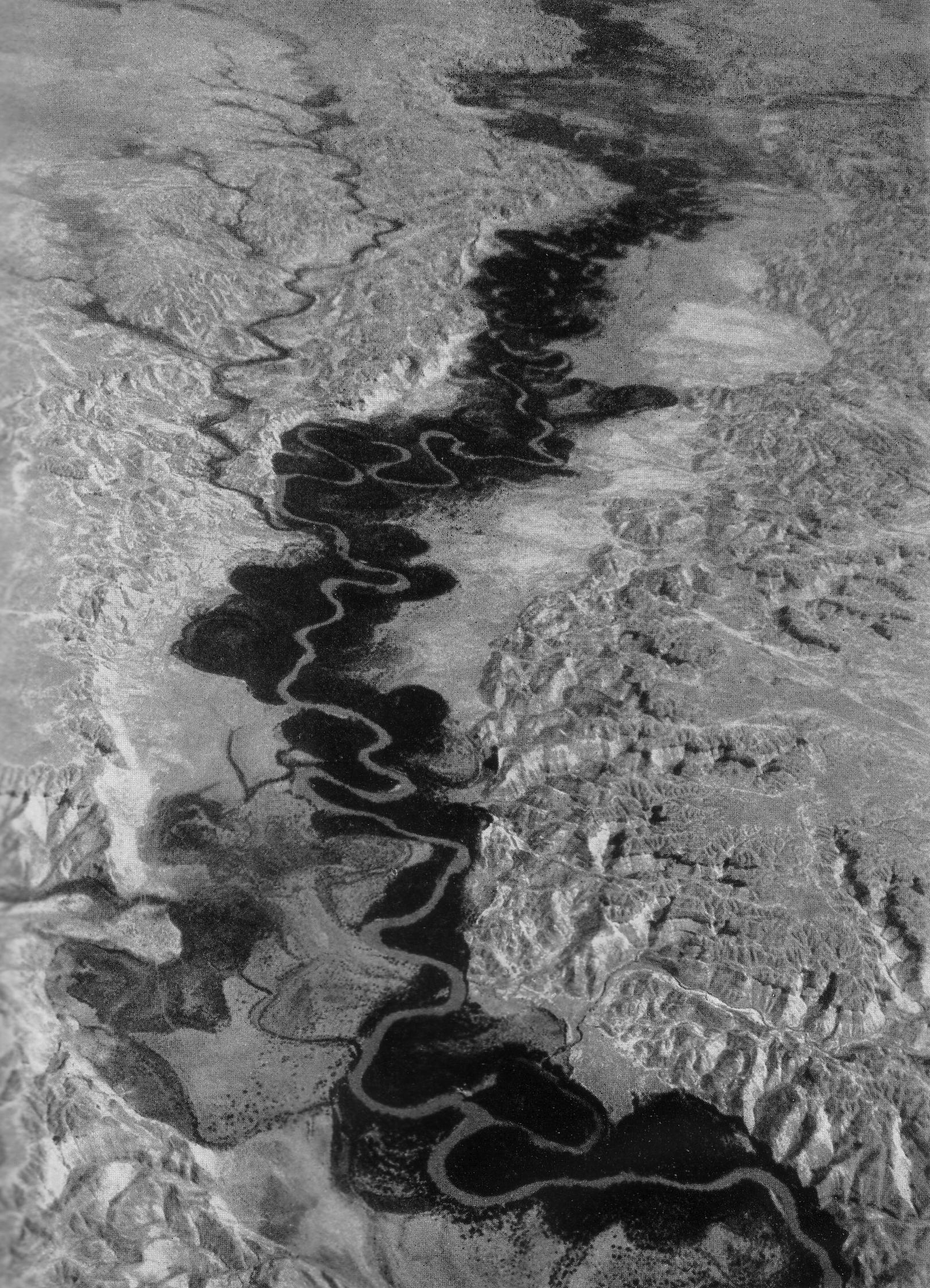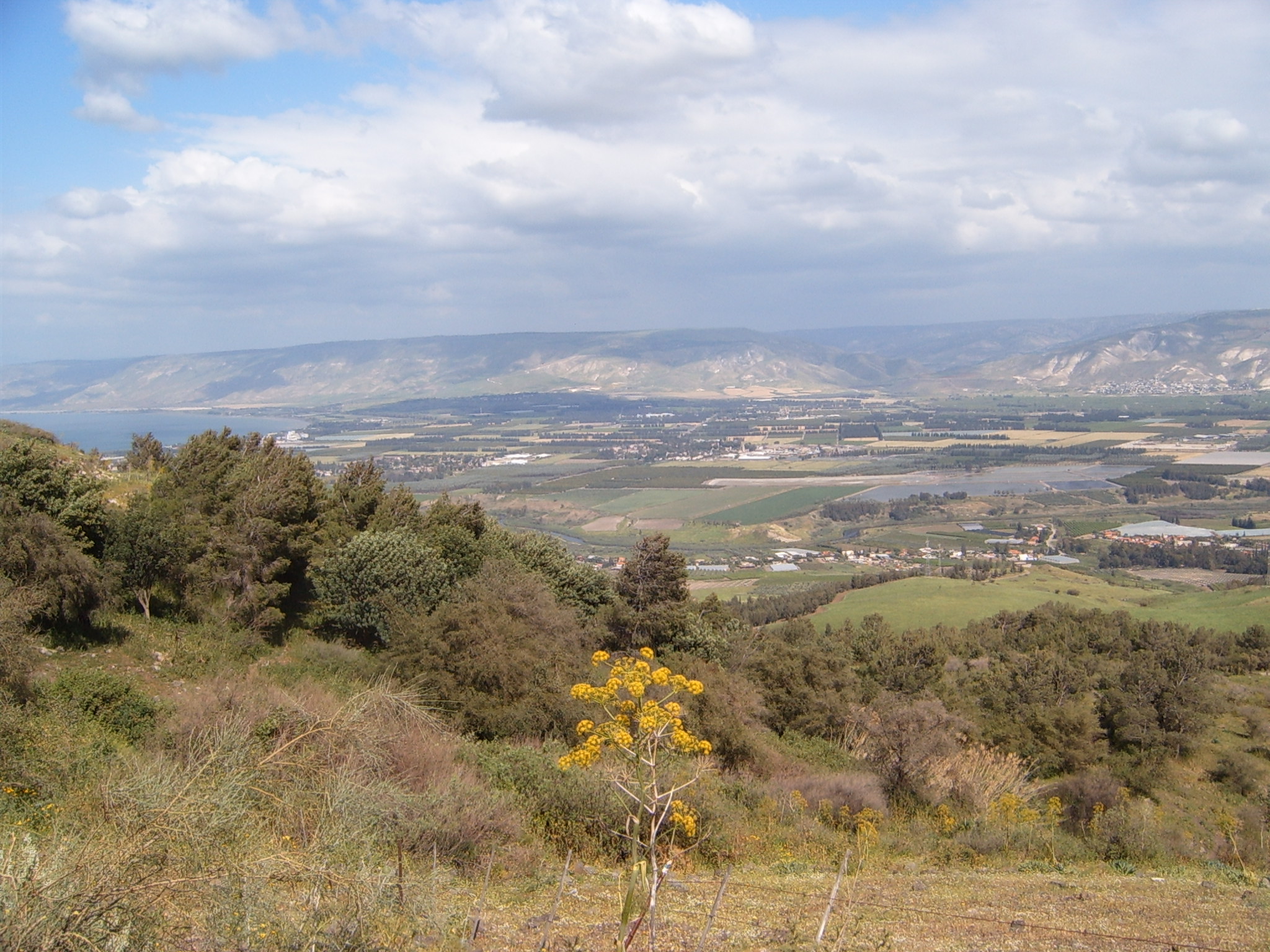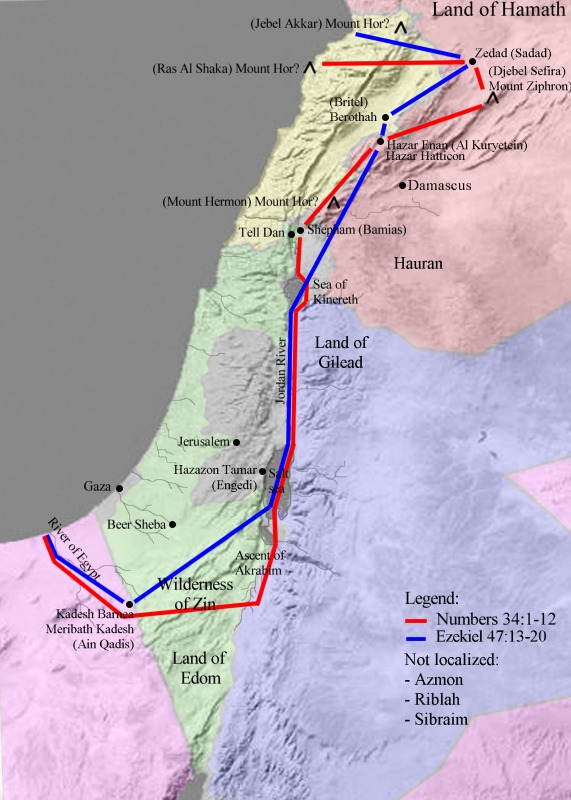|
Jordan River Valley
The Jordan River or River Jordan ( ar, نَهْر الْأُرْدُنّ, ''Nahr al-ʾUrdunn'', he, נְהַר הַיַּרְדֵּן, ''Nəhar hayYardēn''; syc, ܢܗܪܐ ܕܝܘܪܕܢܢ ''Nahrāʾ Yurdnan''), also known as ''Nahr Al-Sharieat'' ( ar, نهر الشريعة), is a river in the Middle East that flows roughly north to south through the Sea of Galilee (Hebrew: כנרת Kinneret, Arabic: Bohayrat Tabaraya, meaning Lake of Tiberias) and on to the Dead Sea. Jordan and the Golan Heights border the river to the east, while the West Bank and Israel lie to its west. Both Jordan and the West Bank take their names from the river. The river holds major significance in Judaism and Christianity. According to the Bible, the Israelites crossed it into the Promised Land and Jesus of Nazareth was baptized by John the Baptist in it. Geography The Jordan River has an upper course from its sources to the Sea of Galilee (via the Bethsaida Valley), and a lower course south of ... [...More Info...] [...Related Items...] OR: [Wikipedia] [Google] [Baidu] |
Jordan Valley (Middle East)
The Jordan Valley ( ar, غور الأردن, ''Ghor al-Urdun''; he, עֵמֶק הַיַרְדֵּן, ''Emek HaYarden'') forms part of the larger Jordan Rift Valley. Unlike most other river valleys, the term "Jordan Valley" often applies just to the lower course of the Jordan River, from the spot where it exits the Sea of Galilee in the north, to the end of its course where it flows into the Dead Sea in the south. In a wider sense, the term may also cover the Dead Sea basin and the Arabah valley, which is the rift valley segment beyond the Dead Sea and ending at Aqaba/Eilat, farther south. The valley, in the common, narrow sense, is a long and narrow trough, long if measured " as the crow flies", with a width averaging with some points narrowing to over most of the course, before widening out to a delta when reaching the Dead Sea. Due to meandering, the length of the river itself is . This is the valley with the lowest elevation in the world, beginning at below sea level ... [...More Info...] [...Related Items...] OR: [Wikipedia] [Google] [Baidu] |
Etymology
Etymology ()The New Oxford Dictionary of English (1998) – p. 633 "Etymology /ˌɛtɪˈmɒlədʒi/ the study of the class in words and the way their meanings have changed throughout time". is the study of the history of the Phonological change, form of words and, by extension, the origin and evolution of their semantic meaning across time. It is a subfield of historical linguistics, and draws upon comparative semantics, Morphology_(linguistics), morphology, semiotics, and phonetics. For languages with a long recorded history, written history, etymologists make use of texts, and texts about the language, to gather knowledge about how words were used during earlier periods, how they developed in Semantics, meaning and Phonological change, form, or when and how they Loanword, entered the language. Etymologists also apply the methods of comparative linguistics to reconstruct information about forms that are too old for any direct information to be available. By analyzing related ... [...More Info...] [...Related Items...] OR: [Wikipedia] [Google] [Baidu] |
Hasbani River
The Hasbani River ( ar, الحاصباني / ALA-LC: ''al-Ḥāṣbānī''; he, חצבני ''Ḥatzbaní'') or Snir Stream ( he, נחל שניר / ''Nahal Sənir''), is the major tributary of the Jordan River. Local natives in the mid-19th century knew the river as the Upper Jordan. The Hasbani River derives most of its discharge from two springs in Lebanon, the Wazzani and the Haqzbieh, the latter being a group of springs on the uppermost Hasbani. The Hasbani runs for in Lebanon before crossing the border at Ghajar and shortly after joining with the Banias and Dan Rivers at a point in northern Israel, to form the River Jordan. For about downstream of Ghajar, the Hasbani forms the border between Lebanon and the Golan Heights. The Wazzani's and the Haqzbieh's combined discharge averages 138 million m³ per year. About 20% of the Hasbani flow emerges from the Wazzani Spring at Ghajar, close to the Lebanese-Golan Heights border, about west of the base of Mount Hermon. The ... [...More Info...] [...Related Items...] OR: [Wikipedia] [Google] [Baidu] |
Hula Valley
The Hula Valley ( he, עמק החולה, translit. ''Emek Ha-Ḥula''; also transliterated as Huleh Valley, ar, سهل الحولة) is an agricultural region in northern Israel with abundant fresh water, which used to be Lake Hula, prior to its draining. It is a major stopover for birds migrating along the Syrian-African Rift Valley between Africa, Europe, and Asia. Lake Hula and the marshland surrounding it were a breeding ground for mosquitoes carrying malaria, and so were drained in the 1950s. A small section of the valley was later re-flooded in an attempt to revive a nearly extinct ecosystem. An estimated 500 million migrating birds now pass through the Hula Valley every year. Etymology Lake Hula was historically referred to by different names. The 14th century BCE Egyptians called the lake ''Samchuna'', while the Hebrew Bible records it as ''Merom''. In the 1st century CE, the Jewish-Roman historian Flavius Josephus termed it ''Semechonitis'' ( el, Σημεχωνί� ... [...More Info...] [...Related Items...] OR: [Wikipedia] [Google] [Baidu] |
Bethsaida Valley
The Bethsaida Valley ( he, בקעת הבטיחה), Arabic: Buq'at al-Butayhah, Mindat.org, accessed 23.1.2022. is a valley by the northeast shores of the at the steep foothills of the central . Etymology Bethsaida Valley is named after the town of , best known from the |
John The Baptist
John the Baptist or , , or , ;Wetterau, Bruce. ''World history''. New York: Henry Holt and Company. 1994. syc, ܝܘܿܚܲܢܵܢ ܡܲܥܡܕ݂ܵܢܵܐ, Yoḥanān Maʿmḏānā; he, יוחנן המטביל, Yohanān HaMatbil; la, Ioannes Baptista; cop, ⲓⲱⲁⲛⲛⲏⲥ ⲡⲓⲡⲣⲟⲇⲣⲟⲙⲟⲥ or ; ar, يوحنا المعمدان; myz, ࡉࡅࡄࡀࡍࡀ ࡌࡀࡑࡁࡀࡍࡀ, Iuhana Maṣbana. The name "John" is the Anglicized form, via French, Latin and then Greek, of the Hebrew, "Yochanan", which means "YHWH is gracious"., group="note" ( – ) was a mission preacher active in the area of Jordan River in the early 1st century AD. He is also known as John the Forerunner in Christianity, John the Immerser in some Baptist Christian traditions, and Prophet Yahya in Islam. He is sometimes alternatively referred to as John the Baptiser. John is mentioned by the Roman Jewish historian Josephus and he is revered as a major religious figure Funk, Robert W. & the Jes ... [...More Info...] [...Related Items...] OR: [Wikipedia] [Google] [Baidu] |
Baptism Of Jesus
The baptism of Jesus by John the Baptist is a major event in the life of Jesus which is described in the three synoptic Gospels of the New Testament (Matthew, Mark and Luke). It is considered to have taken place at Al-Maghtas (also called Bethany Beyond the Jordan), today located in Jordan. Modern biblical scholars view the baptism of Jesus as a historical event to which a high degree of certainty can be assigned. Along with the crucifixion of Jesus, biblical scholars view it as one of the two historically certain facts about him, and often use it as the starting point for the study of the historical Jesus. The baptism is one of the events in the narrative of the life of Jesus in the canonical Gospels; others include the Transfiguration, Crucifixion, Resurrection, and Ascension. The Gospel of John (John 1:28) specifies "Bethabara beyond Jordan", i.e., Bethany in Perea as the location where John was baptizing when Jesus began choosing disciples, and in John 3:23 there is ment ... [...More Info...] [...Related Items...] OR: [Wikipedia] [Google] [Baidu] |
Jesus Of Nazareth
Jesus, likely from he, יֵשׁוּעַ, translit=Yēšūaʿ, label=Hebrew/Aramaic ( AD 30 or 33), also referred to as Jesus Christ or Jesus of Nazareth (among other names and titles), was a first-century Jewish preacher and religious leader; he is the central figure of Christianity, the world's largest religion. Most Christians believe he is the incarnation of God the Son and the awaited Messiah (the Christ) prophesied in the Hebrew Bible. Virtually all modern scholars of antiquity agree that Jesus existed historically. Research into the historical Jesus has yielded some uncertainty on the historical reliability of the Gospels and on how closely the Jesus portrayed in the New Testament reflects the historical Jesus, as the only detailed records of Jesus' life are contained in the Gospels. Jesus was a Galilean Jew who was circumcised, was baptized by John the Baptist, began his own ministry and was often referred to as "rabbi". Jesus debated with fellow Jews on ho ... [...More Info...] [...Related Items...] OR: [Wikipedia] [Google] [Baidu] |
Promised Land
The Promised Land ( he, הארץ המובטחת, translit.: ''ha'aretz hamuvtakhat''; ar, أرض الميعاد, translit.: ''ard al-mi'ad; also known as "The Land of Milk and Honey"'') is the land which, according to the Tanakh (the Hebrew Bible or the Old Testament), God promised and subsequently gave to Abraham and several more times to his descendants. In modern contexts, the phrase "Promised Land" expresses an image and an idea which is related to the restored homeland for the Jewish people and the concepts of salvation and liberation. Divine promise The concept of the Promised Land is based on verses in the Tanakh (the Hebrew Bible or the Old Testament), in which God speaks to Abraham. The promises given to Abraham happened prior to the birth of Isaac and were given to all his offspring signified through the rite of circumcision. Johann Friedrich Karl Keil is less clear, as he states that the covenant is through Isaac, but notes that Ishmael's descendants have he ... [...More Info...] [...Related Items...] OR: [Wikipedia] [Google] [Baidu] |
Bible
The Bible (from Koine Greek , , 'the books') is a collection of religious texts or scriptures that are held to be sacred in Christianity, Judaism, Samaritanism, and many other religions. The Bible is an anthologya compilation of texts of a variety of forms originally written in Hebrew, Aramaic, and Koine Greek. These texts include instructions, stories, poetry, and prophecies, among other genres. The collection of materials that are accepted as part of the Bible by a particular religious tradition or community is called a biblical canon. Believers in the Bible generally consider it to be a product of divine inspiration, but the way they understand what that means and interpret the text can vary. The religious texts were compiled by different religious communities into various official collections. The earliest contained the first five books of the Bible. It is called the Torah in Hebrew and the Pentateuch (meaning ''five books'') in Greek; the second oldest part was a coll ... [...More Info...] [...Related Items...] OR: [Wikipedia] [Google] [Baidu] |
Christianity
Christianity is an Abrahamic monotheistic religion based on the life and teachings of Jesus of Nazareth. It is the world's largest and most widespread religion with roughly 2.38 billion followers representing one-third of the global population. Its adherents, known as Christians, are estimated to make up a majority of the population in 157 countries and territories, and believe that Jesus is the Son of God, whose coming as the messiah was prophesied in the Hebrew Bible (called the Old Testament in Christianity) and chronicled in the New Testament. Christianity began as a Second Temple Judaic sect in the 1st century Hellenistic Judaism in the Roman province of Judea. Jesus' apostles and their followers spread around the Levant, Europe, Anatolia, Mesopotamia, the South Caucasus, Ancient Carthage, Egypt, and Ethiopia, despite significant initial persecution. It soon attracted gentile God-fearers, which led to a departure from Jewish customs, and, a ... [...More Info...] [...Related Items...] OR: [Wikipedia] [Google] [Baidu] |
Judaism
Judaism ( he, ''Yahăḏūṯ'') is an Abrahamic, monotheistic, and ethnic religion comprising the collective religious, cultural, and legal tradition and civilization of the Jewish people. It has its roots as an organized religion in the Middle East during the Bronze Age. Modern Judaism evolved from Yahwism, the religion of ancient Israel and Judah, by the late 6th century BCE, and is thus considered to be one of the oldest monotheistic religions. Judaism is considered by religious Jews to be the expression of the covenant that God established with the Israelites, their ancestors. It encompasses a wide body of texts, practices, theological positions, and forms of organization. The Torah, as it is commonly understood by Jews, is part of the larger text known as the ''Tanakh''. The ''Tanakh'' is also known to secular scholars of religion as the Hebrew Bible, and to Christians as the " Old Testament". The Torah's supplemental oral tradition is represented by later texts s ... [...More Info...] [...Related Items...] OR: [Wikipedia] [Google] [Baidu] |







.jpg)
